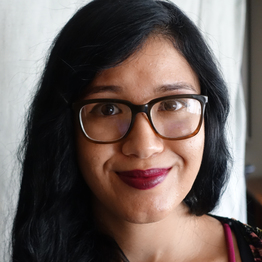Currently, I am a fourth year graduate student in the Social-Personality Ph.D. program at UC Berkeley. I work with Drs. Rodolfo Mendoza-Denton, Jason Okonofua, and Dacher Keltner. Before graduate school, I completed my B.A. in Psychology at UC Berkeley and received highest honors for my senior thesis investigating cross-group friendships online. Through my thesis I worked with Drs. Mendoza Denton and Jordan B. Leitner to develop an online paradigm to allow for dyad (specifically, cross-group dyads) pairing to be done completely online, expanding our participant pool beyond undergraduates. As a McNair Scholar I worked with Dr. Mendoza-Denton looking at the construction of Islamophobia in America, finding that ethnicity was the strongest predictor of Muslim stereotypes, not religion. In addition, I worked as a research assistant with Drs. Mendoza-Denton, Ozlem Ayduk, and Leitner a project on improving Mentor-Mentee relations. My role on this project was to recruit Black and Latino/a participants from the surrounding communities, collect saliva samples, and conduct saliva assays. Having received training in Dr. Lance Kriegsfeld's lab, I conducted saliva assays for levels of cortisol and IL-6 (hormonal correlates of stress). Prior to transferring to UC Berkeley, I attended community college and worked with Dr. Kimberley Duff. During this time, I was able to fully explore social psychology and realize my interests in studying the underlying mechanisms of stereotyping and prejudice.
